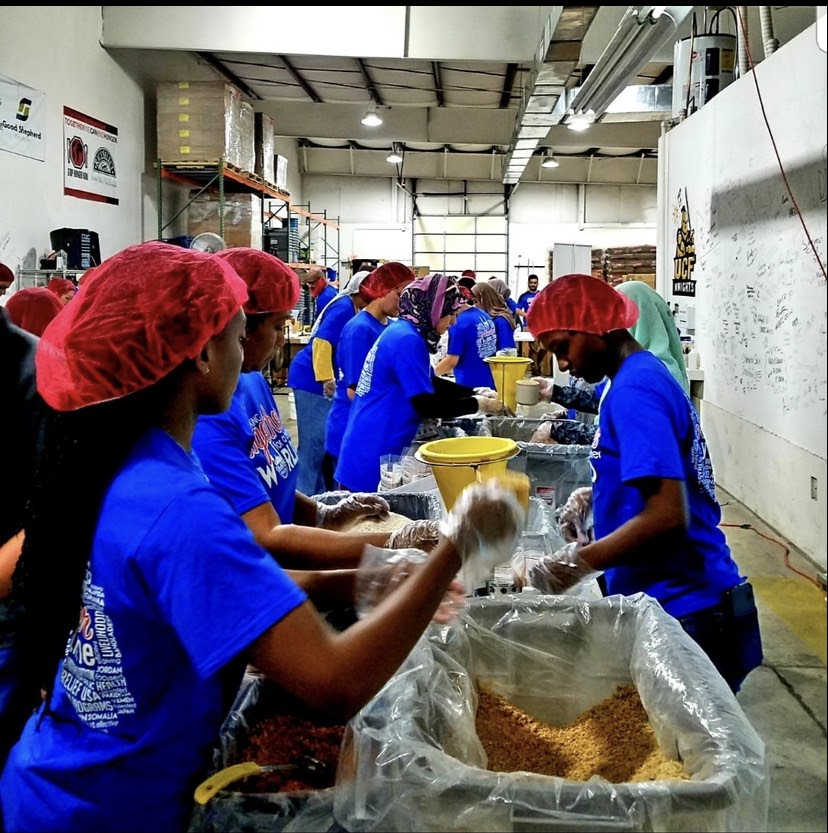A candid conversation with one of IRUSA’s prized volunteers, Wafa Omran-Elhindi
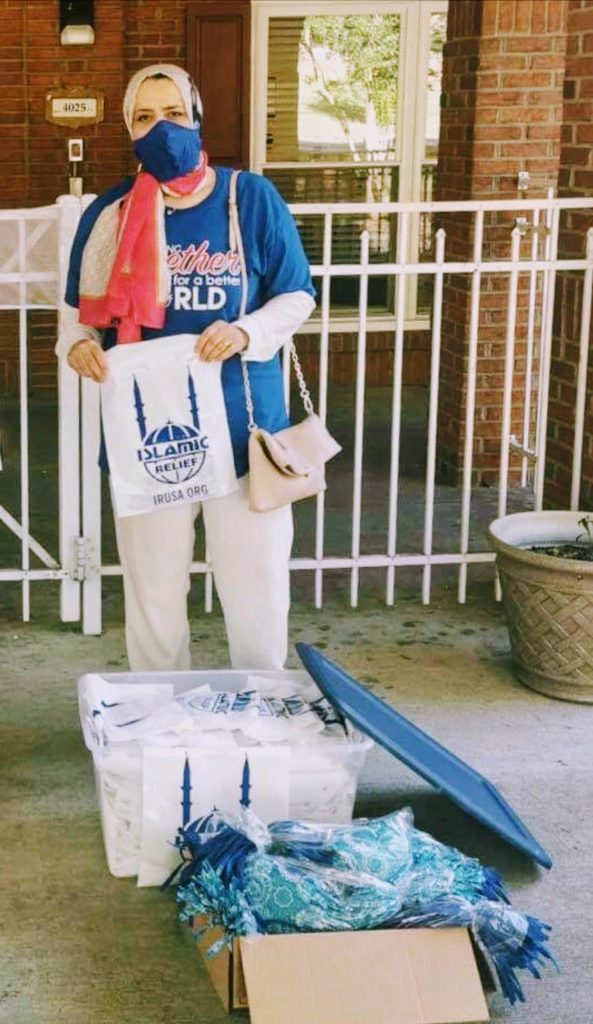
1. At a young age, or while growing up, did you have someone in your life who inspired you to volunteer or to be generous?
My parents were exceptionally generous people. Not only with their money, but more with their affection, kindness, and time. They had this extraordinary ability to make every single person they know feel loved. At the root of this effusive affection was my parents’ inability to be selfish. My dad in particular, grew up dirt-poor in a tent in a refugee camp. His mother had to sell her only possessions, to pay for his education.
So when Allah blessed him with wealth and opportunity, he did not believe it was his own. He knew he had the responsibility to share his blessings with his family and his community. My mom has always opened our home to guests for months at a time. She carried a bubbly personality and exuded compassion. My mother is the most down to earth person you can ever meet. I’ve learned early on to live for a bigger purpose than ourselves.
2. Is there any moment in your life that really made you see that volunteering would always be a big part of your life?
They say “With great pain comes great change.” Four years ago, my son who was a bright, happy, energetic 5 year-old was diagnosed with a rare brain tumor. I witnessed him deteriorate, day after day, to a point where he lost his ability to talk, walk, and eventually he could not open his eyes. Living this pain with my son and the agony of it being so quickly till the night I knew he was leaving us. I held him in my arms till dawn when he exasperated his last breath.
This made me realize how precious life is and how blessed the gifts that Allah bestowed upon us. I had to question my whole life and reflect on what this huge loss meant. I just had to find out what does Allah want from me? He wants more. I kept saying to myself. Even though up until that point I was involved in community service and charity work, I knew that I needed to do more.
Alhamdulillah, I was guided to my purpose and made a conscious decision to contribute all that Allah blessed me with to serve others until the day I meet my Lord, and inshallah be reunited with my son. And that’s how I have lived my life since. Losing my child made me want to be a sponsor mom to as many children as I can. It’s how I keep his spirit alive. It’s how I make meaning of my loss. It’s how I heal.
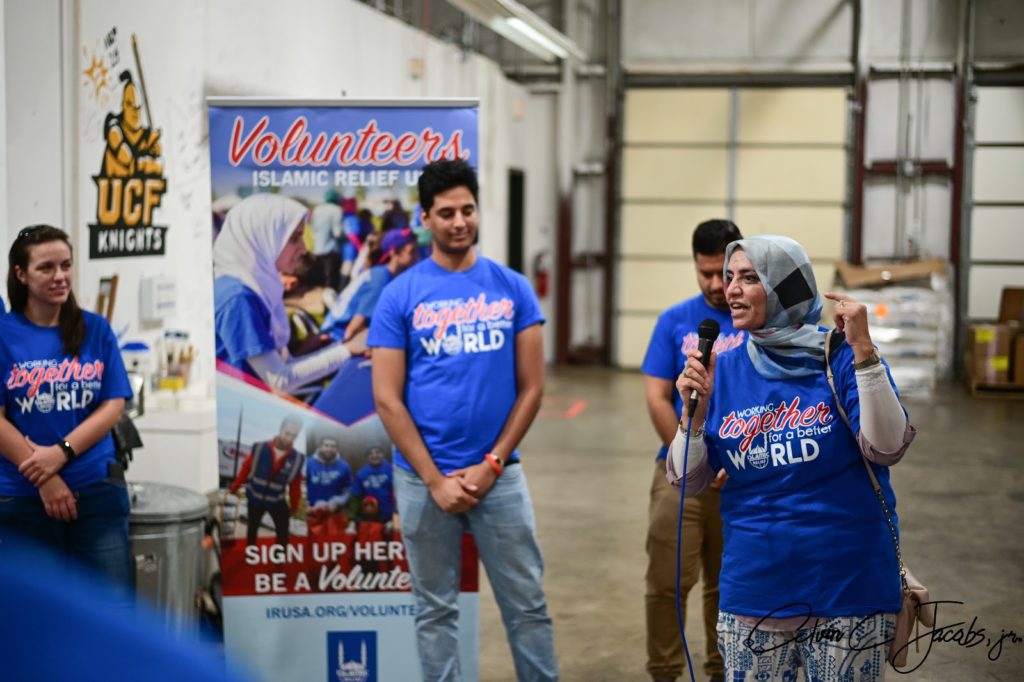
3. Is there a particular saying, hadith, ayah, or any other piece that is an inspiration for you to give your time and give your wealth for a great cause?
There are so many verses in the Quran that guide us to the importance of service as an act of worship. I can’t limit it to one. But if there’s a verse I’d like to live by if Allah allows me it’s this, “And seek with the wealth that Allah has bestowed on you, the abode of the Hereafter.” Then He says “and do good as Allah has done good to you.” We, the believers try to reflect God’s light on earth and be his faithful deputies to promote growth and prosperity as He intended for us. All in efforts to please and attain His acceptance and love. Up to one hundred times Allah mentioned spending paired with belief (Eman).
One of the most beautiful pictures He drew for us in the Quran is the parable of those who spend in the way of Allah like a grain grows into seven ears and each ear into hundred ears. A beautiful display of increase of abundance is through the acts of gratitude.
4. What is your earliest memory of volunteering in life? Who was it for? What kind of work did you do? Did you decide yourself, or were you obligated to volunteer for some reason? (make this question two)
I remember vividly the first time when I was in elementary school in Amman, my aunt, a social worker, took me for the first time to a community center in the neighborhood. We participated in the “Beautify your Neighborhood” program in Amman, from cleaning up the street, painting school walls, and planting trees. That was the first time I volunteered. It gave me a great sense of fulfillment after accomplishing our goals and feeling the rewards of being part of a collective effort. I knew since then I want volunteering to be a regular part of my life.
5. What is your most memorable volunteer experience? Why does it stand out?
When I was in college I was blessed to lead a comprehensive fun activity program in (Hamza Ben Abdelttaleb – Orphan Care Home ) in Marka, Amman. Spending time with the beautiful kids, reading, singing, and doing fun activities with them. At the time, that was heartwarming and the highlight of my college experience.
We all need a human touch. There is nothing more beautiful than a hug from a child. The Prophet (pbuh) says that, “The one who cares for an orphan and myself will be together in paradise like this.” He locked his two fingers. Now, I meet some of those kids all grown up and leading good lives.
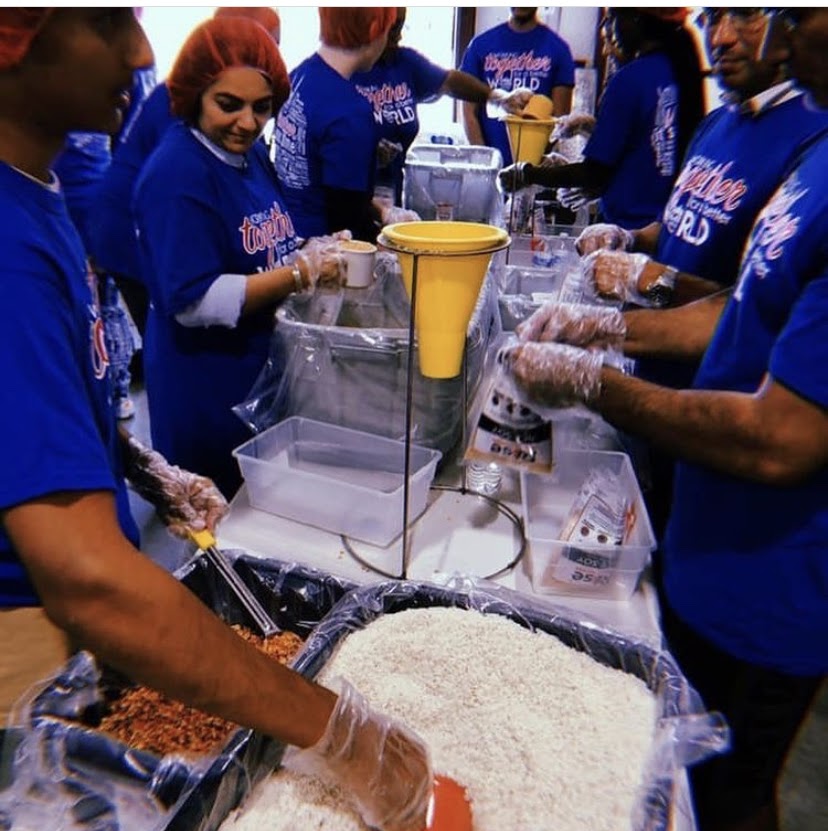
6. Everyone sees the Blueshirts (IRUSA Volunteers) but sometimes we don’t get to meet everyone behind the incredible work. Could you tell us a little bit about yourself
I’m a mother of a wonderful daughter and two lovely sons. I’m a wife to a good man, who is a philanthropist himself and has always supported my work and volunteerism. I am a humanitarian, committed to social justice and community development. With a background in theology and MA in sociology, I am currently doing more learning and studies on sustainability and human development. I’m a traveler who enjoys new experiences and appreciates all cultures. In my spare time, I like to paint. Finally, I love to listen to Islamic Relief podcasts.
7. Our theme has been to envision a better world. Was being a part of IRUSA’s Blueshirts a part of your vision? How did you get into service?
My personal life mission as a Muslim woman, has always been to aspire to the highest form of my being through servitude to Allah and service to others. I believe that through compassion and education we can transform lives and communities, promoting development and growth, especially among the most vulnerable.
My personal beliefs are reflected in Islamic Relief’s core values: excellence, sincerity, social justice, compassion, and custodianship. These values are derived from divine revelation and prophetic examples that guide Islamic Relief’s mission resonate with me personally.
IR’s work is driven by a sense of gratitude to our creator, executed with integrity and patience. Thus, when I met Brother Belkacem Nahi at an IR event in Charlotte, NC. He encouraged me to join IR’s family and become a regular volunteer, it was only natural that I got involved and eventually volunteered to do community outreach and organizing in Charlotte, NC for Islamic Relief. Envisioning a better world is what we aspire for. I am so intrigued by the work IR does domestically and worldwide.
I see our vision aligned perfectly. It’s what we all hope and work for, a world of preserved human dignity, prosperity and absence of suffering for all humanity, instilling justice and promoting growth in vulnerable communities. The reason I’m grateful to Allah for facilitating for me to take a small part volunteering for this giant organization.
8. One common value among IRUSA Blueshirts has been a commitment to compassion. We’ve seen it expressed countless times. Could you tell us a bit about how you’ve seen compassion play out during your time as a volunteer?
Absolutely, kindness and compassion envelopes all the work of IR. Whether it’s restoring houses after a disaster hits or providing care packages and food parcels to the local neighborhood. There are so many that come to mind. But, one particular moment touched my heart. During the early stages of COVID-19, I got involved in a disaster response project led by Br. Said Durrah and Sr. Gihan Ahmed.
We needed to secure 1500 masks from Charlotte. I turned to an Afghan refugee family who had only resettled in the United States a few years ago and had just found their footing. I knew they were skilled at sewing and asked if they would like to help make masks. Their teenage daughter, especially, was eager to participate in this project and provide relief to American doctors and nurses during COVID-19. She wanted to pay it forward and to give to the community as a member of the community. It gave her a sense of belonging and american pride.
9. What has been the project you enjoyed the most taking part in?
In September 2019, we prepared 25,000 meal packs to send to countries in Africa and domestically. Alongside Salman Zaman, we worked with 50 volunteers from diverse religious, racial, and ethnic backgrounds. We came together as strangers but we left as friends, bonded over combating hunger.
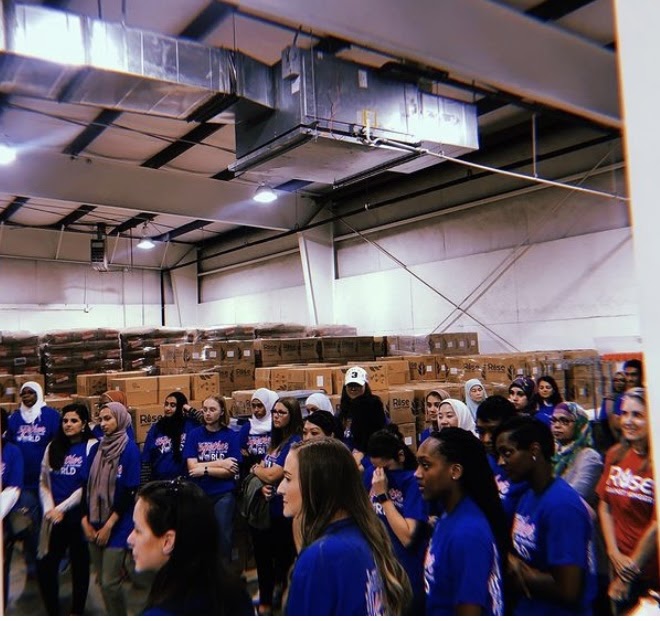
10. We all were rocked by the toll COVID-19 has taken on our communities. How has it been from a volunteers perspective?
At the beginning, It was very difficult not to be able to do work on the ground. However, that opened room for creativity as we adapted and figured out new ways to help. IR responded by moving a lot of fundraisers and events online. I was able to engage with volunteers virtually.
One of the projects that I was happy to lead a team for was the 2020 Hajj Challenge and Water for Life project. What was nice about that project is that we walked the Hajj steps individually or with teams remotely so we can maintain social distance. In total, IR was able to raise $25,000 and support water infrastructure in 25 villages.
11. What can volunteers take away from having COVID-19 flip everything on it’s head? It made us realize that life is unpredictable. If we want to lead a life of service, we need to seize the moment, step up our game. In times like these we need to wear our thinking hats and be innovative. Yes, maybe COVID changed the way we live, but for those of us who are lucky it did not stop us from living and having to fulfill our duties. While IR relief efforts have been serving over 40 countries abroad, they are doing multiplied work domestically. We now know it can be our next door neighbor that needs support. We need to do more.
I think we need to look at this pandemic as a pivotal moment in how we approach service. Despite the disparate effect COVID-19 has had on different communities, at the end of the day we are all experiencing this pandemic and its various challenges as a collective. But knowing that some of us are much more disproportionately affected by COVID-19 should compel us to step up and give our time and effort to our communities in need, now more than ever.
But beyond COVID-19 and the current state of emergency, we need to tap in our hearts and find our passion. Service is rooted in passion. I pray that each one of us can find his or her purpose and carry on to translate it to action.
